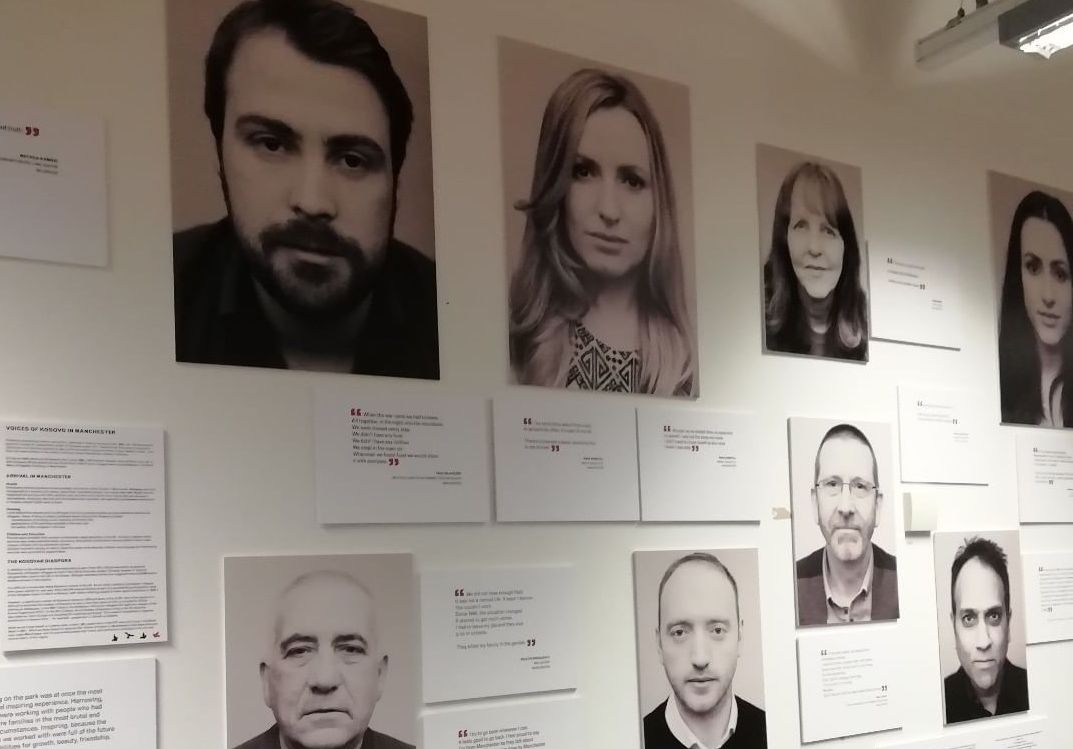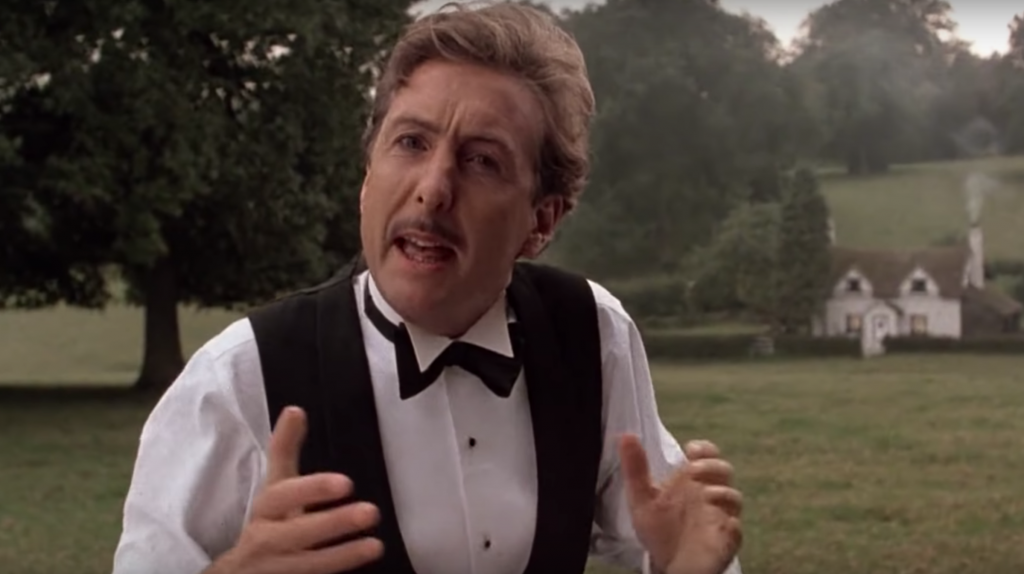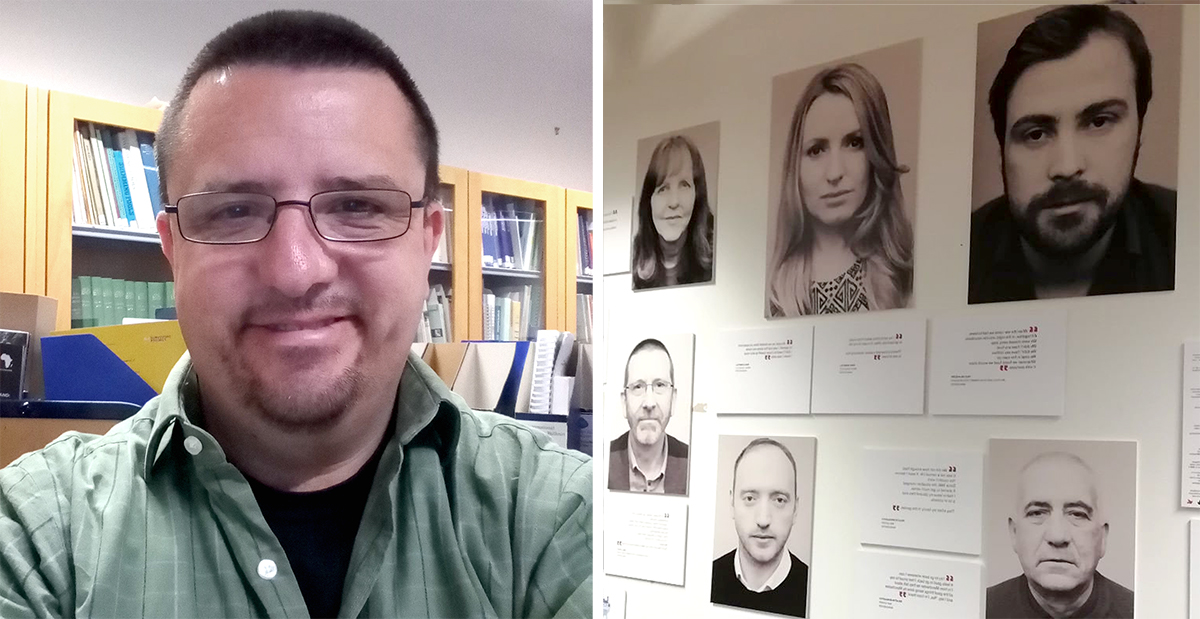From re-learning the art of listening to overcoming life’s challenges, Refugee Council archivist Paul Dudman shares words of wisdom as he answers EachOther’s big questions.
Paul, a self-described “activist archivist”, has been documenting the history of forced migration and the lives of refugees for more than 17 years at the University of East London’s Refugee Archives.
He believes that the archives hold the power to allow often marginalised voices to be heard and used in support of refugee advocacy, through collecting and preserving people’s life stories.

Refugee Council Archive Exhibition for #RefugeeWeek2019. Showcasing material from the Voices of Kosovo in Manchester oral history project developed by Manchester Aid to Kosovo.
Describe what you do in 10 words or less.
Archivist for the growing refugee archive at University of East London.
What is the most important lesson you learned while growing up?
Life is hard and will always be a challenge. Some challenges you can overcome. Some you have to be brave and navigate your way through.
What advice would you give a ten-year-old you?
Keep strong and believe in yourself and keep your humanity.
Who would play you in a movie of your life?
Eric Idle (Monty Python).

Eric Idle in Monty Python’s The Meaning of Life. Credit: YouTube.
What are you most proud of?
Developing a university archive from scratch, to being an active and supportive research and engagement space – supporting human rights, community engagement, and interdisciplinary research.
Is there anything you would like to achieve which you haven’t yet?
How long do you have? There are so many. As long as there are injustices in the world, our work continues.
Professionally, the archive needs to continue to be reflective of the communities and their narratives that we serve. So continuing to work and develop networks with community stakeholders to ensure the inclusion of multiple voices in the historical record.
Personally, exploring how to share the knowledge and best practice learnt over 17 years working in the archive.
If you could immediately put right one injustice in the UK right now – which would it be? Why?
Refugee rights. I’ve been working in the refugee and forced migration field for over 15 years now, and it is vital that we treat everyone with the care and humanity they deserve. The safeguarding of refugee rights is more important now than ever with the rise of right-wing politics, negative media coverage, and the ‘hostile environment‘ policy.
Which human right is the most important to you? Why?
My response would be they are all equally important. Individual human rights do not exist within a self-contained vacuum and it is important that we allow space and context for human rights to interact with society.
Do you have any ideas about what should be done to help heal the divisions in society right now?
On a personal level, I feel we need to remember how to listen to people, to be considerate and to be understanding of the people around us.
We seem to be surrounded by the discourse of division in our media and politics, and we need to be able to challenge this negativity through our own ability to take the time to listen to others and to understand; to engage with the society that we live in, and not isolate ourselves. To quote a Pink Floyd analogy, we have to remember not to build a wall.







